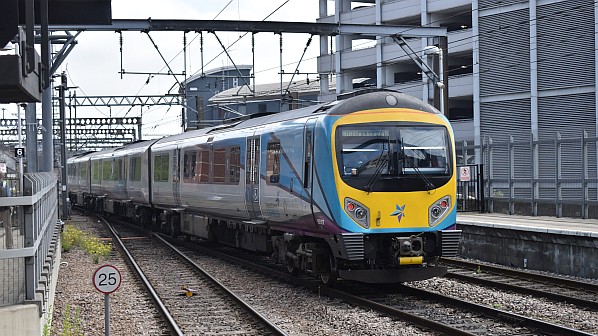SENIOR managers from three British passenger operators entered the lion’s den on January 23 when they attended a “panel discussion” held by the All-Party Parliamentary Rail Group (APPRG) of MPs and peers at the House of Commons.
The meeting had been organised to discuss services across the north of England, where in recent months passengers have suffered from serious disruption, frequent cancellations and lengthy delays.
MPs and peers drew on their own experiences of travelling or attempting to travel on services operated by Avanti West Coast (AWC), Northern and TransPennine Express (TPE), as well as the experiences of their constituents, and their anger and frustration was palpable.
Baroness McIntosh described TPE as “part of a plot” to encourage homeworking, and said delays and short-notice cancellations had driven her to abandon a planned rail journey - “we got back in the car,” she admitted.
“Some days you don’t have any service at all,” said Mr Jason McCartney MP.
Former transport minister, Mr Paul Maynard MP, told AWC “you would be out of the door if I had my way,” citing the operator’s failure to meet its obligations to provide passengers with timetable information sufficiently in advance, as required by regulator the Office of Rail and Road.
“It’s been an awful, awful time and I apologise unreservedly for that,” said AWC director of corporate affairs, Mr Richard Scott. He described how “more or less overnight” the drivers’ union Aslef had withdrawn its consent for its members at AWC to work their rest days, forcing the operator to drastically reduce its timetable last year.
Working overtime is voluntary for many drivers in Britain, and operators rely on this goodwill and staff working on their rest days to provide a full timetable. Scott said that AWC was now working to introduce new rosters that would spread out rest-day working more evenly throughout the week, reducing the heavy reliance on this practice to operate services from Friday to Monday.
New rosters had now been agreed by staff at seven of AWC’s eight driver depots, with negotiations continuing with driver representatives at the largest, London Euston. “We are making progress with that,” Scott said.
He was confident that AWC was on an upward trajectory, now providing a better service to its customers than had been the case last autumn. “We are improving,” Scott said, “although from individual experience it may not seem like that.”
TPE’s head of regional development, Mr Graham Meiklejohn, was also contrite. “Performance is unacceptable,” he told the MPs. “I apologise personally and on behalf of TPE.”
Like AWC, labour relations have been central to TPE’s woes. Meiklejohn described how in December 2021 Aslef had withdrawn from an overtime agreement, bringing an end to rest-day working.
Combined with higher absence rates after the Covid-19 pandemic, now running at 14%, this resulted in high levels of delay and cancellations, and has had a major impact on driver training.
As well as ensuring that drivers receive refresher training on train types and route knowledge, TPE is now conducting a major training programme in preparation for the major route closures that infrastructure manager Network Rail will be undertaking to deliver the Transpennine Route Upgrade (TRU).
TRU is making extensive use of diversionary routes to avoid the use of replacement bus services, requiring a major route learning and refresher programme for drivers at TPE. “No other operator in the north has had training of such scale,” said Meiklejohn. “Without rest-day working, we have seen training taking longer.”
With the approval of the Department for Transport (DfT), TPE has made a “best and final offer” to Aslef in an attempt to restore rest-day working. This would offer drivers time and a half, or £47.65 an hour, to work overtime.
Aslef has rejected this offer without balloting its members at TPE. Some would obviously be glad to accept, for as Meiklejohn noted some drivers were leaving to work for freight operators where they would be able to earn overtime.
Restoring overtime would allow TPE to complete its training programme and would have “a material impact on performance,” Meiklejohn said. Getting Aslef to agree to TPE’s offer would be “the quickest way to give stability and certainty to your constituents,” he told the MPs.

